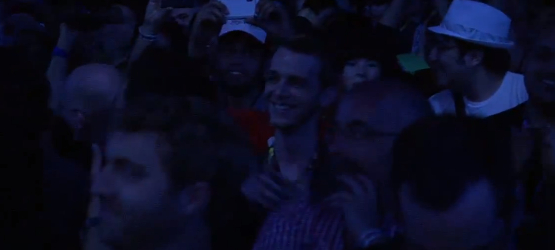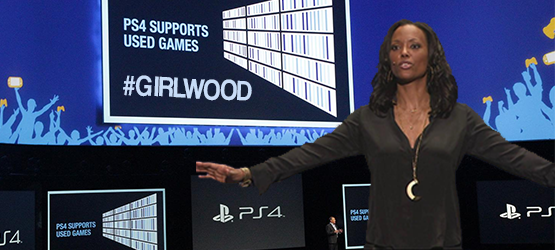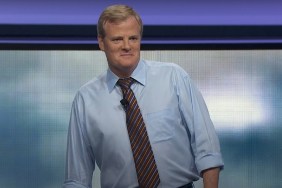E3 is in less than two weeks, and perhaps the most sought after portion for people not heading to the show are the press conferences that take place in the days prior to the convention. Today, Daily Reaction is talking about the highs and lows of press conference content and delivery strategy.
Chandler: In the information age, some may see press conferences like the ones done at E3 as odd formalities. Couldn’t developers and publishers just reveal information the way they do during the rest of the year, in press releases and trickled out online on their own time? Why force things to fit within the E3 schedule? The answer is simple: content strategy. There is a sea of information about games, and much of it is lost before it can even be processed, meaning that some news can go completely unnoticed by some during the year. People simply aren’t looking for it. Enter E3, stage right.
E3 is the time of year when all eyes are on the video game industry. Even the ones who don’t tend to be on bleeding edge of every new bit of video game news know about E3 and the wealth of information that it contains. If you swam in the ocean not looking for anything, you could easily miss those treasures. But given a map and the right delivery? A trove of information about new and coming games can be yours for the taking, and the industry has your attention.
Simply giving everyone a place to look isn’t good enough though. With all eyes on video games every summer, the pressure is on to ensure that the delivery of content is on point. Remember Sony’s conference during E3 2013? Sony blew everyone out of the water with how they strategically delivered their strategy for the PS4. It wasn’t entirely about the information as it was about the way that Sony said it. It lit a fire. Sony has people that are excellent public speakers — gamers — who know how to speak to to their fan base effectively and have experience directly with what they are talking about. In simple terms, Sony puts on a great show that keeps people watching and talking.
There’s the other end of the spectrum though. Terrible delivery of the content can get people focusing on the wrong thing. Konami’s conference at E3 2010 was interesting, to say the least, and left people thinking more about the laughable delivery than the content. Ubisoft consistently uses Aisha Tyler as a celebrity E3 press conference host, which personally leaves me feeling a little bit disconnected from Ubisoft and gaming during their shows. Unfortunately I remember “girlwood” more than I actually remember the Ubisoft content that Aisha Tyler says she gets so much girlwood over. I don’t need a celebrity driving the content. I just want it passionately given by people who genuinely care about the work that they are doing in the industry with games and content that they themselves have had a hand in creating or bringing to gamers.
I know I always go back to it, but this once again ties back to leaks in the industry. Leaks are another form of bad delivery, enabling content to get swept away in the ocean of news rather than delivered in an effective and strategic manner that keeps people talking and helps specific news to gain more traction and visibility than if it is given when and where people aren’t looking for it. Sure, every company has had its fair share of embarrassing and awkward E3 moments, but it’s not every one that gets those shining moments that we remember for years to come. With E3 2015 right around the corner, here’s hoping that everyone is on their A-game for content delivery.

Dan: While I do agree a great deal of this has to do with content strategy, as the ability deliver information about upcoming releases is the foundation for what press conferences are geared around, I do think there are a few other contexts for which they exist. Besides being a vehicle for mass distribution, the ability to have a press conference gives a publisher a face, and or a voice that can become instantly attached to the brand. This works in two fold, the first being something to show how relatable they can be, even if they fail miserably — Ex: Girlwood. The second is a demonstration to shareholders about the brand power of a product, as well as the status of a company in the public eye, which can show influence and longevity.
The question then comes down to why not every publisher invests in the same manner as others when it comes to E3. Well, honestly, I don’t know, and that is something I have been curious about as well. I do know that the costs for putting on a press event of the magnitude that we have become accustomed to is a financial nightmare, and is something that can easily backfire if done wrong. So, I do understand that not every publisher feels the need to do it, especially if their line up can be better represented in another way, even if they can afford to do a presser.
This is where I believe we start to see various 3rd party studios or publishers make an appearance at the press events for specific 1st party publishers like Sony, Microsoft and Nintendo. Not only can they mitigate the need to hold a massively expensive event of their own, they can also immediately grab onto new potential customers who would not have tuned into their show. The only problem, of course, is the need for exclusivity, or the potential for a single sided appearance to create platform confusion. This is something that many gamers get post-E3, as the details behind which titles are exclusive, timed-exclusive, or even simply containing exclusive content, can be difficult to manage.
Every E3, the industry seems to just throw a year’s worth of information at the world, and only so much of it can truly stick or find an appropriate target. This is genuinely where the games media comes into play, as we act as a filter to help organize the titanic amount of information flowing out over the week. But, besides having appointments behind closed doors, and what is playable on the show floor, the experience of seeing something truly unveiled for the first time with a degree of showmanship is all the more memorable, which are the things that tend to rise to the top of everyone’s memory as the event starts to close. This is something that brings me back to what Chandler was talking about, content strategy.
As we have said before, the ability to simply control information is something that is very, very important in our industry, and is something that many consumers will not understand, as we are all gouging ourselves daily on an abundance of random details. That is why publishers really have become more and more involved in the way information gets to the public. With E3 only weeks away, the need for more people to be involved in maintaining embargoes spikes dramatically, and that is only another drop in the bucket of the complexity and potential risk and reward of our industry.
What do you think of E3 press conferences? What are your favorite and least favorite E3 press conference memories? Deliver your comments below, send your press release emails to DailyReaction@PlayStationLifeStyle.net, or enjoy our strategic delivery of tweets on Twitter @Foolsjoker and @Finchstrife.








